Dungeons & Dragons & Diversity
Using my love of fantasy worlds to leave the real world better than I found it.

The interior hell of the pandemic definitely precipitated within most of the youth and adult populations across the globe, a frantic scramble to find hobbies. In a bid to escape the crushing monotony and existential terror of repeated lockdowns and periodical quarantines, people looked for ways to create joy and connection in their day-to-day. People were en-masse re-directing their energies into more creative or previously unexplored pursuits - a phenomenon that resulted in incredible situations like the Great Yeast Shortage of 2020 (Loaf tins, one of the unsung heroes of the early pandemic in North America), and the Return of the Sea Shanty (Actual sea not required)
Just as the world looked for their safe havens amidst the chaos, so did I - and I found mine in the world of Dungeons & Dragons. For those who don’t know, D&D is a tabletop role-playing game (TTRPG) where players create characters and work together to build stories. You can fight monsters, save cities and become heroes by rolling some dice and engaging in some improv with your friends. I find myself fortunate enough to live in a sort of Renaissance period for the world of D&D and TTRPGs.
While yes, the memory (and trauma) of the Satanic Panic might continue to haunt the grizzled old-guard of D&D players, and yes, the hackneyed image of the bespectacled, socially reclusive, and sexually inept adult nerds haunting the basements of their despairing parents’ homes in wizard cosplay, continues to (somehow) survive, as exemplified by this extremely out-of-touch SNL sketch from 2019
(I apologize for this viewing experience, even though Kit Harington should be the one delivering the apology)
Despite the aforementioned (terrible-wiged) interpretations of this classic tabletop roleplaying game, the TTRPG industry is experiencing a massive surge in popularity This can be seen in the success of streamed D&D live-play shows/podcasts like Critical Role, Collegehumor’s Dimension 20, and The Adventure Zone, that each rack in hundreds of thousands of views with every single stream.
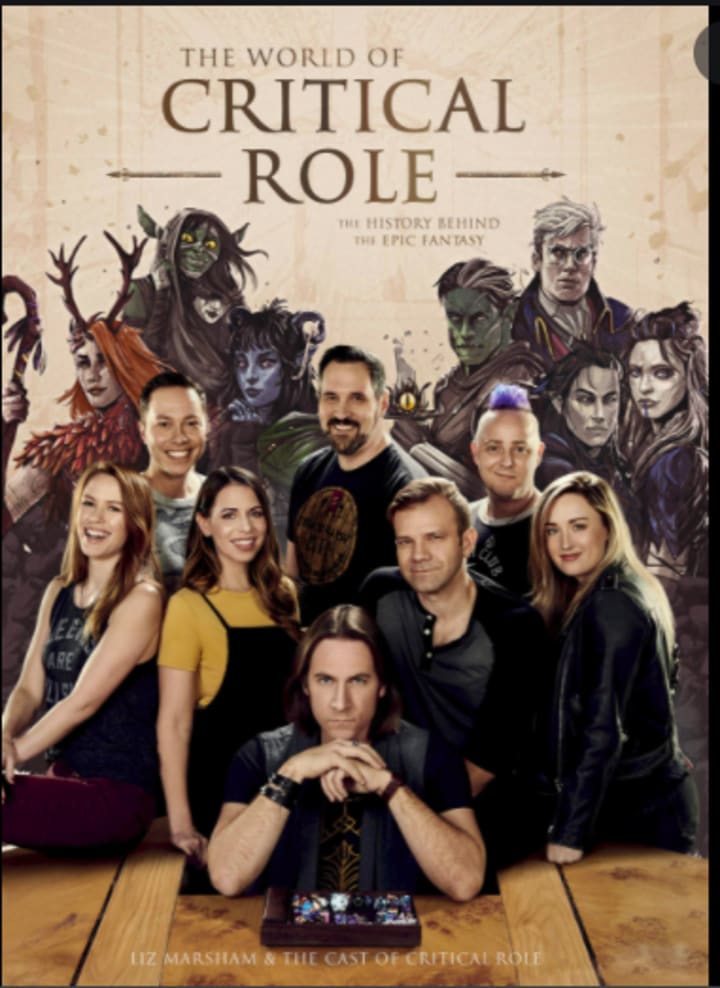
And this is to speak nothing of the sheer volume of industries that have sprung up around the TTRPG phenomena ranging from artisan handmade dice shops on Etsy to elite customized 3D printed miniatures and battle maps that can break the bank. In fact, RIP to Kit Harrington and the terrible wig enforced on him, but the face of D&D looks way more like this these days
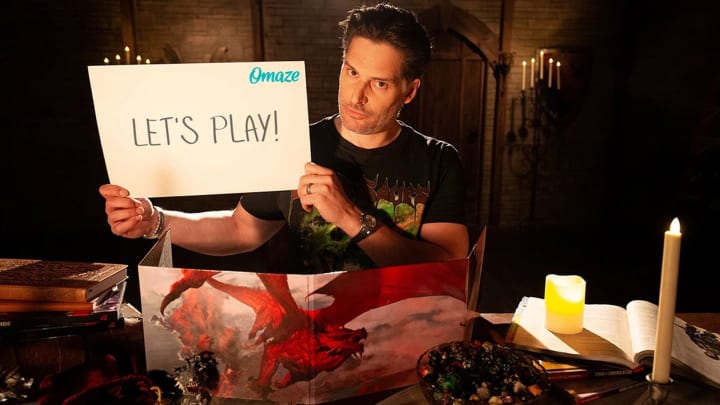
D&D is commercial now, baby, and there is money to be made. (Somebody tell that solitary nerd stuck in SNL’s basement since the 70s)
And amidst this surge of RPG content and commerce, I found a niche that changed my life. It must be said that for someone who spent most of her childhood obsessed with fantasy, storytelling, and general dramatics, I got into Dungeons & Dragons fairly late in life.
It was my fourth year of university, and my roommate asked me to help her solve a puzzle that had befuddled her D&D party for over an hour. Now two years, two dozen sets of dice, and approximately 900 hours of watching streamed RPG content later, I can’t imagine what else I would be doing with my limited free time.
D&D is the perfect marriage of various facets of storytelling in my experience. First, you have the written world in which you play. This is something that needs to be developed, thought out, and carefully brought to life just through the power of words. Then you have the intrinsic dependence on imagination - the words are the building blocks to the world, but you need your imagination to sink into those foundations - to immerse yourself and believe in the reality you are weaving with your words. There is the performance aspect, of course, you have to embody whatever character you are playing- live in their thoughts, interact and react as they do (usually in terrible, affected accents if you’re anything like my friend circle). And then comes the most important aspect of D&D - collaboration.
D&D is not a solitary sport, it is collaboration at its purest form. There is no story to be told or game to be played unless you are building one right there in the moment with your friends. D&D, when done right, is a masterclass on the act of collaborative creation. And while my interest in D&D blossomed in university, it was during the pandemic that it became more of a lifeline.
Like many others, I was stuck miles away from my family, trapped in my tiny apartment, unable to even meet friends who lived down the road. D&D became our shared avenue for finding community when all our other mens to socialize were taken away from us. Our monthly game quickly became weekly and then by mid-June (2 months after the pandemic was "supposed to be" over) we had started playing almost every other day.
It was a way to create something beautiful in an otherwise grim time. It was also a way to have concentrated hours together that lockdown now denied us. And it was fun.
I say with utter seriousness that D&D contributed greatly to keeping me sane through this very dark period in all of our lives. The consistent collaborative act of creation with my friends helped fend off some of the worst hits to my mental health and allowed for a channel where I could deal with the harsh reality of my day-to-day through a lens of fantasy and gameplay. This was evident when my whole party of rugged adventurers spent a four-hour game session just going to a fantasy bar and having a drink together - something that my friends and I hadn’t been able to do with each other in months.
Even beyond the social aspect, D&D provides a fantasy terrain to explore, without consequence, themes, events, and actions that people may be unable to process or grapple with in their real lives. Through my games, I have not only fought goblins or looted a dragon’s hoard, but I have also processed genuine feelings of fear and loss through the lens of my character’s experiences. I have explored aspects of my personality that I may not have understood entirely in my real life, like the extent I would go to protect those I care about.
And this is not an experience unique to me or my friends. Mental health professionals have begun to look at D&D as a potential medium of therapy and social development. Children’s counselor, Katie Lear, summarized this idea in her blog last year.
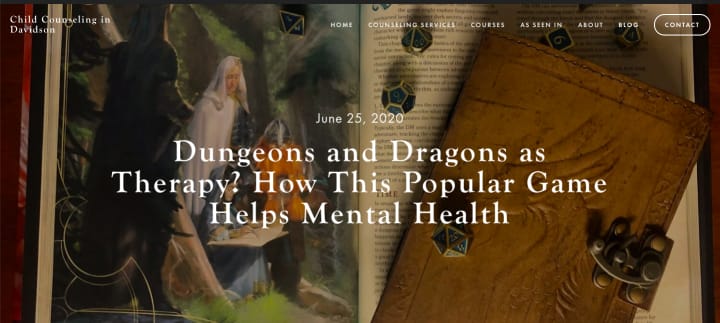
According to her article, some of the possible mental health benefits of D&D are:
Improved social skills with peers
Increased self-esteem and self-confidence
Ability to express yourself and your needs assertively
Improved impulse control and practice with turn-taking
Stronger creative thinking and problem-solving skills”
In fact, Fandom Uncovered did an incredibly moving series of interviews with some of the most prolific faces of the modern-day D&D movement, that exemplifies the deep healing impact that D&D can have on players.
As the DM of Critical Role, Matthew Mercer says in the video,
“It is a testament to the power of storytelling. Everybody is hurting, everybody wants to be happy, everybody is looking for someplace to belong, and looking for other people to tell them that they're loved."
My love for D&D has quickly evolved beyond what it could do and has done for me, and has transitioned to a desire to use this passion as a tool to help others. Whilst this present-day surge in interest surrounding D&D has had an incredibly powerful positive impact on a lot of people, there is still a ways to go to ensure that D&D is a space that is welcoming and inclusive to all communities and individuals who want to tell their stories. The modern renaissance has brought with it many fresh and diverse voices to the game, but the D&D community still struggles to completely leave behind its predominantly heterosexual white-male origins. D&D has been around since the 70s, and a few of the "traditionalists" of the system often react violently to any change or transition in their chosen hobby. Which unfortunately includes the evolution of more inclusive systems or more diverse D&D players. This can include little things like changing of small game mechanics between subsequent editions of the game, to violent misogynistic and racist reactions to people who don't fit the “straight-white-guy” model of player, becoming prominent within the industry.
Gatekeeping and vitriol are the bread butter of the internet troll, and unfortunately, RPG spaces are not immune to this effect, despite being games literally running mechanically on the power of friends. This issue became incredibly prominent in 2020, in the wake of the Black Lives Matter movement, where matters of diversity and representation in D&D were brought to the forefront. The topics at hand ranged from the choice to persist with distorted, racist, and anti-Semitic archetypes, like those for orcs or goblins, all the way to discussion on the lack of actual BIPOC voices within the companies that create these games.
These conversations were punctuated with loud, and bold gatekeeping by the same D&D “traditionalists” who rallied against any measures towards inclusivity and diversity.
Honestly, I don’t want to platform any of the actual vitriol put out into the world by these individuals, so just take a moment to imagine these reactions of online gamers.
Whatever you are thinking, it's definitely that bad or worse.
So on one hand we have a game that has the power to build community and positively transform any individual who plays it. On the other, we have the fringes of a xenophobic community that may drive away individuals who could otherwise bring greater dimension to this game, for all the overall better.
This is where my work begins. The only way to aid in the continued evolution of D&D and storytelling to be more inclusive and diverse is to add more prominent diverse voices to the mix. Be so loud and bold and unapologetically ourselves that we bring new dimensions to the history of storytelling. Tell stories that haven’t had the time they deserve in the spotlight, and tell them in ways that nobody has experienced before.
I would like to build a platform to showcase such storytelling.
My dream is a two-tier cake of fantasy nerd goodness. On the first tier, I would like to focus on the story and the storytellers themselves. The vision is simple - a D&D podcast/live-stream that features an all POC cast and is set in a unique fantasy world that falls outside the boundaries of the Eurocentric worldbuilding prevalent in “traditional” D&D. The podcast would feature artists, performers, and storytellers from diverse communities and backgrounds, whose unique stories will be weaved together to create something entirely new in-game.
The desire for this kind of story goes beyond a simple need for representation. It is not just about having diverse voices. It is about using our lived experiences and histories that so often get silenced, or sidelined and not only bringing them to the forefront but also using them to redefine the boundaries of genres like fantasy, that have been homogenous for years. What would a fantasy world without Tolkien's orcs look like?
Exponentially better if you let new people tell their story.
In the perfect version of this dream project - I would be able to build this show, and use it as an opportunity to introduce other artists/performers/storytellers to the world of D&D, as well as create something unique for others like me to enjoy. I believe there is a story within me, that can bring something entirely new to the table. I also believe there are countless people out there with similarly transformative stories, who similarly currently don't have a platform.
The second tier of my dream cake is all about the impact of the story on the storyteller. I have spent the first half of this article trying to highlight the incredible, positive impact that this game has had on my life as well as the lives of other players. I would like to bring this positivity into the lives of others. In addition to the D&D podcast, I would like to build a community outreach program that brings D&D to at-risk youth (kids and teens) from impoverished or otherwise difficult backgrounds. This would involve running a consistent D&D game for these individuals where they can use the game as a medium to learn social skills and work on personal development. Engaging with concepts such as story-building, creative writing, and improv acting from the seat of gameplay will allow them to establish and build on useful skills that can then be applied to either academics or any future careers they would like to pursue. The social aspect of consistent playing groups and regular interpersonal interaction will help them learn to collaborate and work with others - whilst also building bonds and making friends. D&D is a game that runs on the power of friendship - empathy is the currency you learn when you start playing this game.
I would like to run this operation like a non-profit in tandem with the podcast, allowing players from the youth community the opportunity to get involved with and work on the podcast/show if they so desire. This can be to further build upon their work experience or to develop any specific skills they would wish to focus on.
If I received the funds to kickstart this project, I would use them to first acquire the equipment required to create the livestream and podcast, as well as to lay the groundwork for my non-profit. This would include partnering with occupational therapists and mental health professionals to be consultants for the youth groups as they engage in the game, as well as to set up the resources to actually run these sessions - for example: finding a community center or library wherein I could start this initiative and begin running the games. I would also need funds to run marketing campaigns that would raise awareness for these initiatives, and attract both players as well as more backers to support this initiative. I want to create a project that is able to fairly compensate all the players/performers/editors/counsellor/dungeon masters/etc that would be involved in actually bringing this vision of mine to life.
There is so much beauty to be found in storytelling and ourselves, I just want to do my part in bringing more of each to the light.
TL: DR (for those who skipped to the end)- I would like to channel my passion for D&D and its myriad of fantasy worlds and use it to leave this real-world better than I found it.
About the Creator
Malvika Nair
23 year old writer trying to actually write.



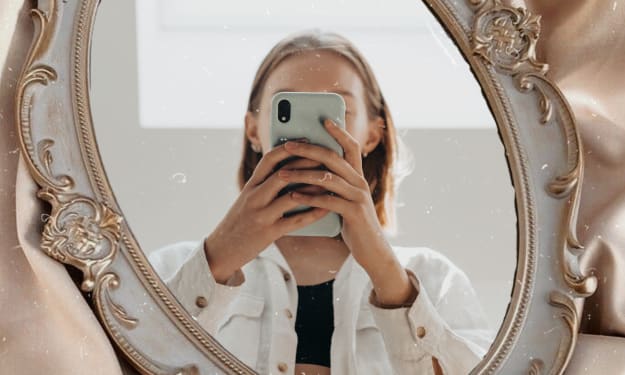

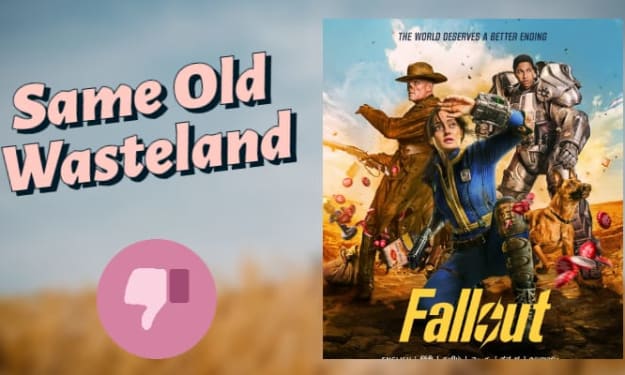

Comments (1)
Hey Malvika, I just stumbled across this while Googling my own company :-). Thanks for featuring my blog post on D&D therapy! We've since spun those games off into their own business, Young Dragonslayers. If you ever want to talk about your multi-layer dream D&D cake, please email me there!